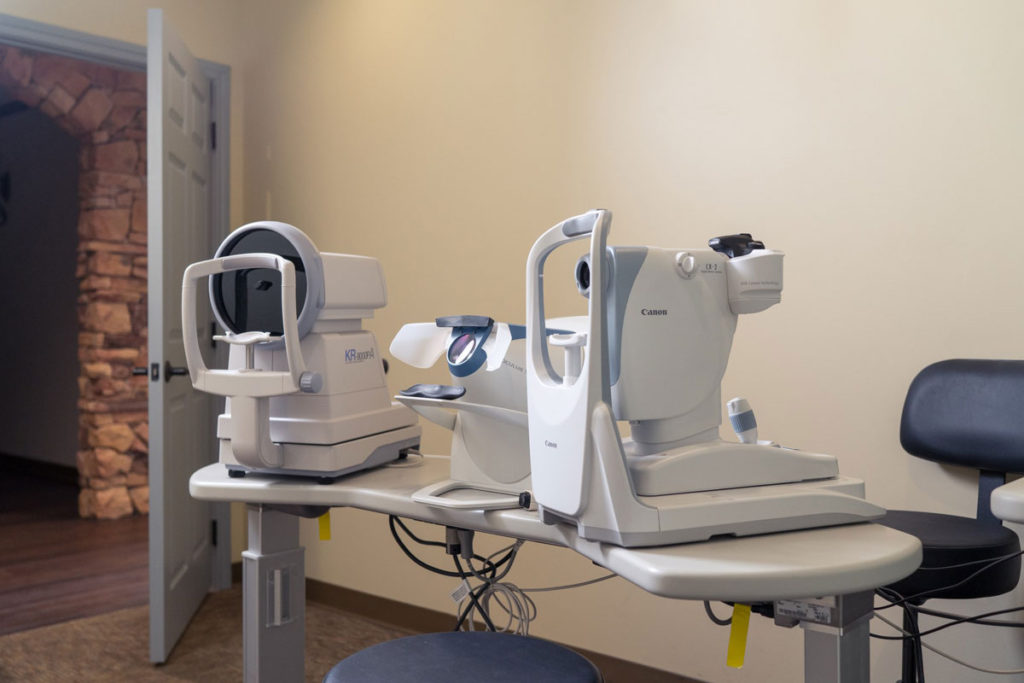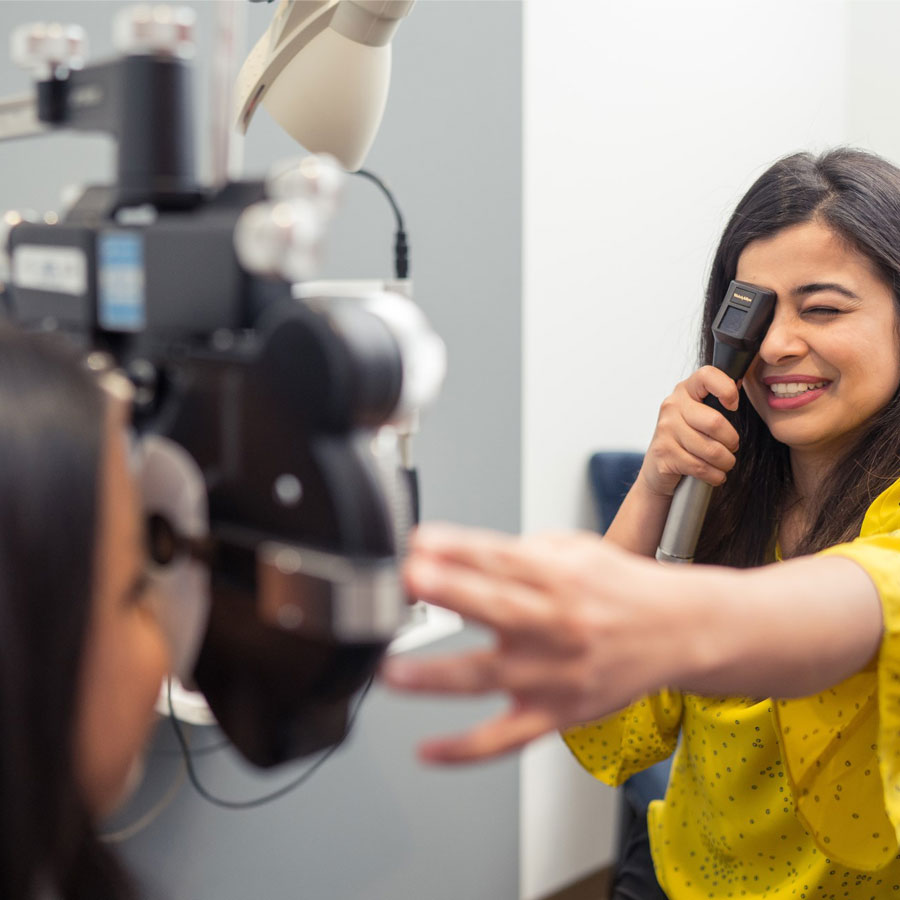Comprehensive Eye Exams

Comprehensive Eye Exams
Most of your daily activities and responsibilities depend on your ability to see. Good eye health and vision allow you to participate in activities like driving, computer work, reading, and sports – not to mention enjoying the beauty of the sunset or a loved one’s smile.
For all of these reasons, your eyes deserve the same care and attention as the rest of your body with regular health checkups.
What can you expect during an eye exam?
Protect your vision through Eye Exams

The reason eye diseases cause so many cases of blindness is because, without a comprehensive eye exam, these conditions are extremely difficult to detect. Most eye diseases do not present early signs or symptoms that can be detected outside of an eye exam.
Most patients with diabetic retinopathy or glaucoma experience no visual disturbances or changes and have no pain until the condition has progressed too far to be effectively treated.
Why are annual eye exams so important?
Most people assume that if they can see fine (they have no visual acuity problems), then they do not need to visit the eye doctor. The American Optometric Association, however, recommends that all healthy adults have a comprehensive eye exam at least once per year and that children visit the optometrist before beginning each new school year.
When it comes to eye conditions and diseases, early detection and action often means the difference between effective and ineffective treatment. Annual, comprehensive eye exams do more than measure visual acuity. They ensure the early detection and treatment of certain irreversible eye diseases, like glaucoma, in adults and the detection and treatment of common, reversible childhood eye conditions, such as amblyopia (lazy eye) and strabismus (crossed eyes).
